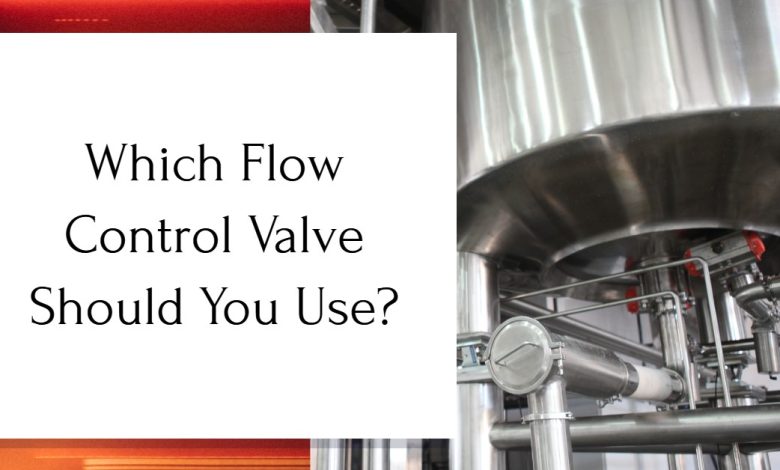Which Flow Control Valve Should You Use?

A flow control valve is a crucial part of any plumbing system. It helps regulate water flow, preventing flooding and the overuse of resources. In this article, We will assist you in knowing what types of valves you should be using in your home or business based on your needs.
Flow control valves come in different types and sizes. The most common are gate, needle, ball, and globe valves. Each type of valve has its unique benefits and drawbacks:
Gate Valves
A gate valve is a flow controller with a disc that moves perpendicular to water flow. They can be challenging to operate in tight spaces. Install gate valves at a low height to make them easier to access.
Gate valves are available in different sizes and are essential for both hot and cold water supply lines. However, you cannot use them when the system is pressurized, or that pressure may damage it severely.
Gas stations often use this valve to deliver high-pressure fuel without leakage.
When to Use a Gate Valve
Gate valves can be essential when quickly turning the water off or on, such as flushing a toilet. They are also ideal for regulating water flow in cold water supply lines.
Pros:
- Quick shutoff/on
- Can regulate water flow
Cons:
- Not suitable for high-pressure systems
- Difficult to operate in tight spaces
- It comes in specific sizes
When to Not Use a Gate Valve
Do not use gate valves when the system is under pressure, severely damaging it. Gate valves should also not be used in hot water supply lines, as they can rust over time.
Needle Valves
A needle valve is a flow controller with a small hole restricting water flow. This makes them ideal for controlling the pressure and flow rate in a system. They are also easy to operate, even with gloves on.
However, it can be challenging to find the right size for your needs and can be expensive compared to other types of valves.
When to Use a Needle Valve
Needle valves are perfect for controlling the pressure and flow rate in a system. You can also use them to make precise adjustments to the water flow.
Pros:
- Precise adjustments
- Easy to operate
Cons:
- It can be challenging to find the right size
- More expensive than other types of valves
When to Not Use a Needle Valve
Do not use needle valves to turn the water off or on quickly. They are also not ideal for regulating water flow in hot water supply lines.
Ball Valves
A ball valve is a flow control valve with a ball that moves perpendicular to water flow. It is easy to operate. They are also inexpensive compared to other valves, making them great for DIY projects.
Ball valves come in different sizes but come with a limited number of options when it comes to adjusting how much water flows through them from your system into another line. However, they are not suitable for high-pressure systems.
Ball valves can also get stuck or damaged if you do not lubricate them often enough. It would help if you inspected it regularly to ensure that the ball is still moving freely and there are no leaks in its system.
We suggest using a special penetrating oil on ball valves every six months.
When to Use a Ball Valve
Ball valves perfectly regulate water flow in hot and cold water supply lines. They are also ideal for DIY projects because they are inexpensive and easy to operate.
Pros:
- Inexpensive
- Easy to operate
Cons:
- Not suitable for high-pressure systems
- May get stuck or damaged if lubrication is not done properly
When to Not Use a Ball Valve
Do not use ball valves when quickly turning the water off or on. They are also not ideal for regulating water flow in high-pressure systems.
Bottom Line
When choosing a flow control valve, it all depends on your needs. If you need a quick shutoff or on, then a gate valve is your best bet. Use a needle valve for precise control over the pressure and flow rate. And if you’re looking for an inexpensive option that is easy to operate, go with a ball valve.
